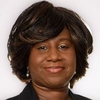Expert Witness Depositions in Nursing Home Injury Cases: Selecting, Preparing, Questioning, Defending

Course Details
- smart_display Format
Live Online with Live Q&A
- signal_cellular_alt Difficulty Level
Intermediate
- work Practice Area
Personal Injury and Med Mal
- event Date
Monday, June 9, 2025
- schedule Time
1:00 p.m. ET./10:00 a.m. PT
- timer Program Length
90 minutes
-
This 90-minute webinar is eligible in most states for 1.5 CLE credits.
This CLE course will guide attorneys representing plaintiffs or defendants in nursing home injury cases to take or defend the depositions of expert witnesses. The panel will discuss best practices for selecting the right experts for the case, preparing your expert for deposition, effectively questioning the opposing party's expert, raising or defending objections, and planning ahead to leverage testimony during trial or settlement negotiations.
Faculty

Ms. Kohn started off her career as an Assistant Public Defender in Tampa. Since 1999, she has been focused on bringing justice to those harmed by others. Ms. Kohn represents clients victimized by other individuals, unscrupulous insurance companies, institutions, and Nursing Homes.

Ms. Parson is the managing partner of the firm’s New Jersey office. She has experience representing clients in complex commercial litigation, focusing on insurance coverage, litigation general commercial litigation, personal injury liability, products liability, environmental liability, mass torts, professional negligence, medical malpractice, and employment liability; as well as in New Jersey’s Municipal Court. Ms. Parson also has experience in providing coverage opinions and advice to insurance carriers concerning their coverage obligations under various types of insurance policies including, comprehensive general liability, group property and casualty lines, public entity insurance, specialty and professional risk, excess, contractors, automobile liability, and workers’ compensation and/or employer’s liability coverage. In addition, she represents clients with municipal court liability and is a former New Jersey Municipal Court Prosecutor.
Description
Every nursing home injury case requires competent expert opinions usually on the core issues of standards of care, causation, the existence of preexisting conditions, and the patient's overall health to name a few. Both plaintiff and defense counsel need to carefully evaluate what type of experts are needed depending on the type of injury and theories of liability or defense. Typically, experts are nursing professionals, nursing home administrators, or specialized physicians.
Making sure that the correct expert is being called to discuss a particular topic is paramount. Counsel must know the foundational requirements related to licensing and required knowledge of methods, procedures, and treatments in the relevant community. Doctors, treating physicians, nurses, facility directors, geriatric experts, or rehabilitation therapists may be needed.
Both when taking a deposition and when preparing its own experts and defending depositions, counsel should anticipate lines of questioning that might inadvertently open the door to otherwise unavailable topics.
Listen as this experienced panel of long-term care attorneys discusses legal and practical considerations for medical malpractice and personal injury attorneys when taking or defending depositions of expert witnesses in nursing home injury cases.
Outline
- Selecting the right expert for the case
- Professional competence
- Ability to convey the client's story/defense
- Preparing your expert for deposition
- Deposing the opponent's expert
- Topics to cover
- Critical documents
- Dealing with obstructionist/evasive answers
- Raising and defending objections
- Deciding not to depose opposing experts
- Post-deposition strategies: using deposition information
Benefits
The panel will drill into these and other essential aspects:
- Who are the key experts to depose for the most common types of nursing home injury cases?
- What options exist for dealing with obstructionist conduct and evasive answers?
- What are the pivotal topics for plaintiffs and defendants in expert depositions?
- How can counsel prevent the expert from being portrayed as a villain?
- What are the most important documents for depositions of experts?
Related Courses

Defending Trucking Cases: Preventing Misuse and Mischaracterization of the CDL Manual
Wednesday, April 2, 2025
1:00 p.m. ET./10:00 a.m. PT

Expert Witness Depositions in Nursing Home Injury Cases: Selecting, Preparing, Questioning, Defending
Thursday, April 24, 2025
1:00 p.m. ET./10:00 a.m. PT

Nursing Home Depositions: Establishing Liability Using State Surveys, MDS, OBRA, Policies Manuals
Friday, April 18, 2025
1:00 p.m. ET./10:00 a.m. PT
Recommended Resources
Making Continuing Education Work for You, Anytime, Anywhere
- Learning & Development
- Career Advancement
Getting the Most Out of BARBRI Resources
- Learning & Development
- Business & Professional Skills
- Talent Development